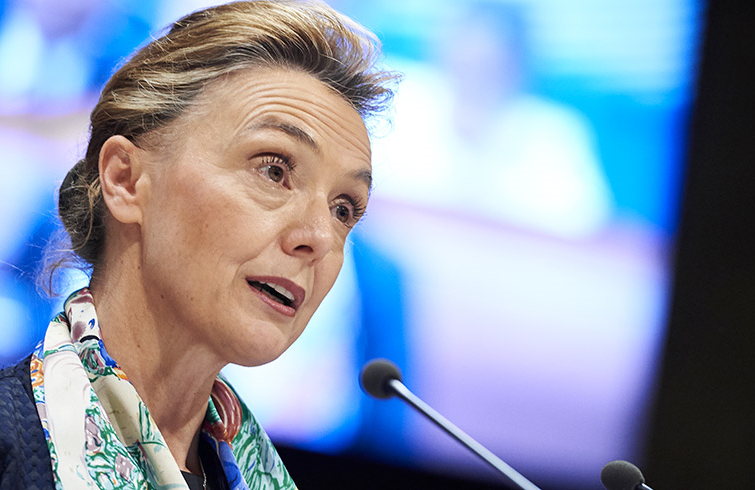
“Hybrid education, which combines in-person and online learning, is expected to continue. We will need innovative and evolving teaching methods”, and there will be “challenges in the definition of qualifications and in the assessment and recognition of qualifications themselves”. Marija Pejčinović Burić, Secretary General of the Council of Europe, said this at today’s virtual meeting of Education Ministers held in the framework of the Greek Chairmanship of the Committee of Ministers. At present, the Council has identified “four main axes” around which we should focus our efforts: strengthening democracy through education; supporting innovation in learning and teaching; working on qualification assessment and recognition; and guaranteeing the right to education for the most vulnerable students. These are also the essential points of the “Political Declaration on the education response to the COVID crisis” that was adopted today together with a roadmap from the Council of Europe, which “lists the concrete actions the organization intends to take to assist its Member States and make the right to education a reality” even in these difficult times.
COVID-19 “has already inflicted huge damage on our societies and must not destabilize them further by depriving young people of equal opportunities and widening the social gap in a new generation”, the Secretary General continued. That is why education must continue to be “inclusive”.
